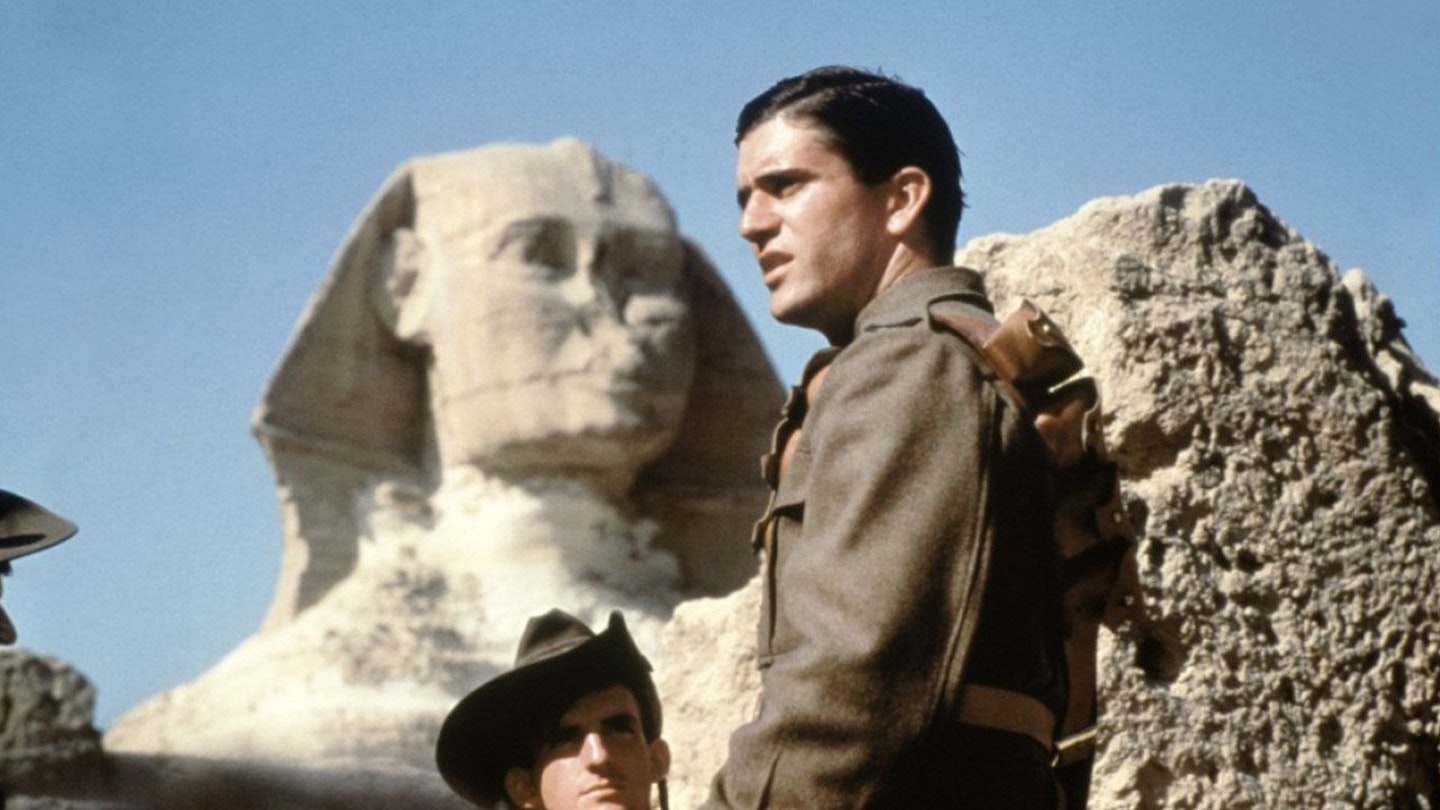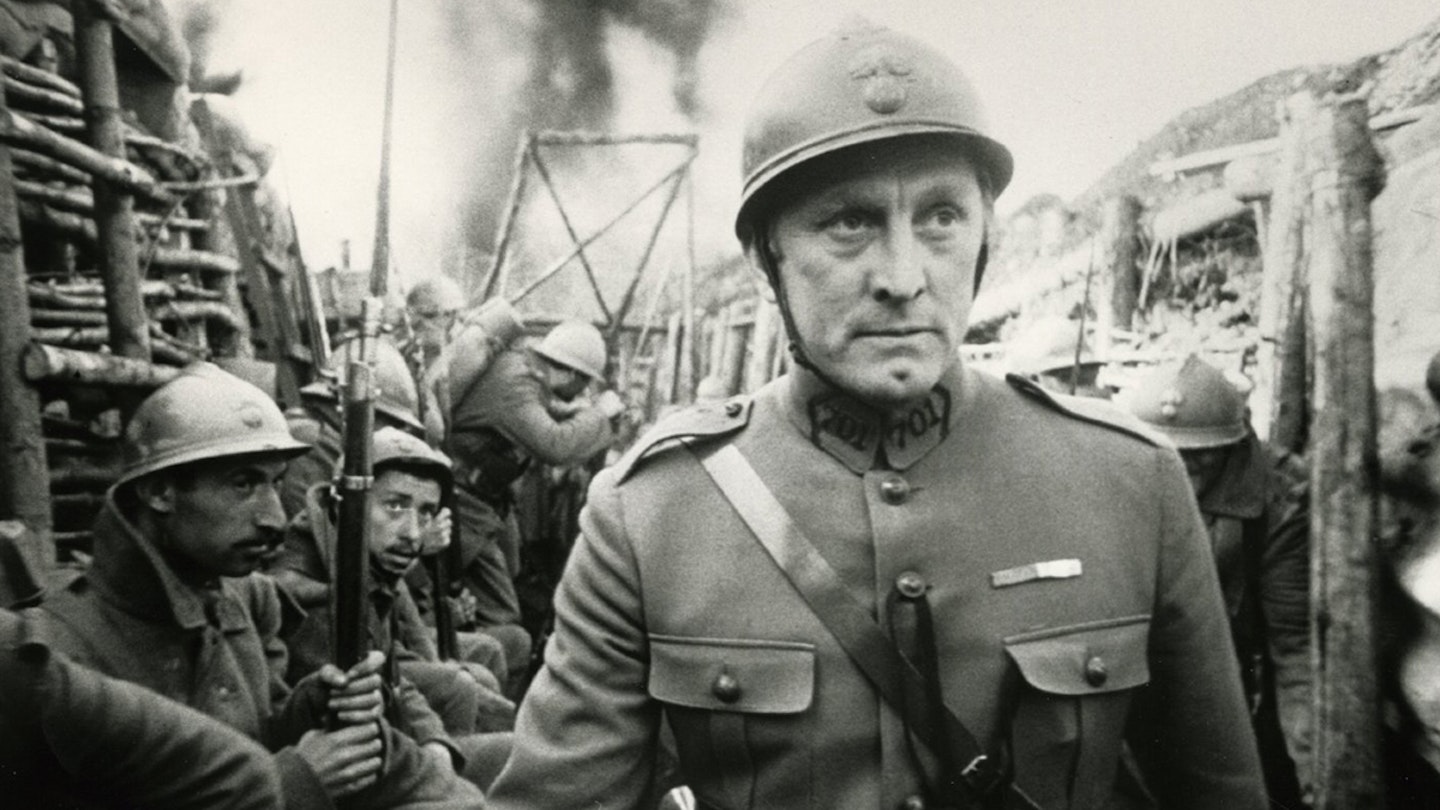A haunting and moving tribute to the Australians who sacrificed their lives in WWI against not the Germans but the Turks at the lesser sung battle of Gallipoli from the assured hand of Peter Weir. Made not a year after the intellectual rattle of fellow Aussie anti-war movie Breaker Morant, Weir’s film takes a more obvious but, in many ways, more affecting route — the tragic loss of innocence.
These two prettified friends are virtually an anthem for lost youth in their own right. A young Mel Gibson, free of the acerbic undertones or fanaticism of his later career, is Frank a city kid who can surely run and meets equally beautiful and fleet-footed country-boy Archy Hamilton (Mark Lee) at a track meet. It is a moment of familiar destiny as their friendship draws them toward the war as an opportunity to find honour, glory, escape, all the patented offerings of a soldier’s life that tend to keep the abject horror and death to the fine print.
Here, like All Quiet On The Western Front and countless other observers of The Great War’s great losses, is a study of the illusory and real forces that propel dreamy young men into the fields of conflict. This is as much a matter of comradeship — there are whispers here of a homoerotic bond between the two heroes — as duty, men drawn to stand alongside each other. And Weir portrays this strange calling as an intimate elegy, shot with both candour and an fascinating counterpoint between the expanse of the Outback and the limits of the hot trenches, that reveals his unerring talent for opening up the sad hearts of men.

